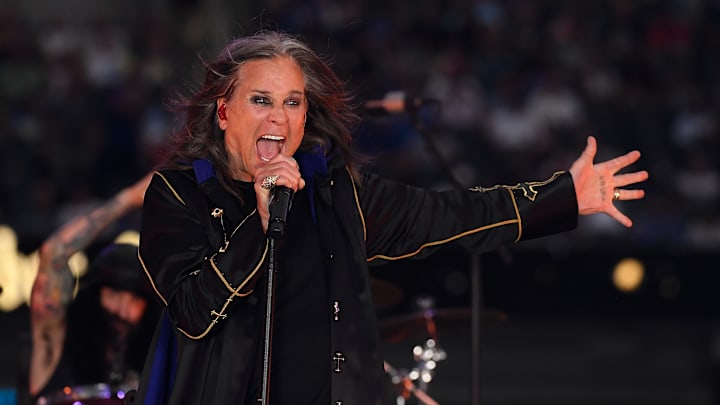No. 7 - 13 (2013)
In 2013, after years of touring, Black Sabbath finally put together an album with Ozzy Osbourne on vocals for the first time since 1978. The band promised a return to form and 13 is exactly that. The highly anticipated reunion album features the band’s iconic dark, heavy sound that fans grew accustomed to in the early 1970s. Album highlights include the epic eight-minute single “God Is Dead?” and the album closer "Dear Father.”
"God Is Dead?” is similar in structure to their namesake song, “Black Sabbath,” in the fact that it features a slow, heavy build-up and multiple tempo changes as the track chugs along. "Dear Father" is an uptempo rocker that closes the standard edition of the album the same way their first album started: with church bells chiming and rain pouring down in a full circle moment that fully encapsulates the band’s legendary career.
The band even nods to "Planet Caravan" from the Paranoid album with the track “Zeitgeist," a slow acoustic jam that is a nice change of pace in an album full of heavy metal goodness. The album was 35 years in the making, but it was well worth the wait, and the band closed a storied career in a big way.
No. 6 - Sabbath Bloody Sabbath (1973)
Picking up where the band left off with Vol 4, Sabbath Bloody Sabbath contains a good mix of the band’s original style combined with new infused elements that keep the music fresh and tight. The album contains some of Iommi’s finest riffs including the masterful title track that has become a staple for fans and fellow musicians alike. Lyrically, the album dives deep into the concepts of the mystery of birth and DNA which was a first for the band’s songs.
The combination of Iommi’s powerful riffs, Geezer Butler’s thought-provoking lyrics, and the band’s ability to push boundaries while remaining true to their roots makes Sabbath Bloody Sabbath a memorable album.
No. 5 - Sabotage (1975)
Recorded amid a legal battle with management, Sabotage unleashed the anger that the band felt as a result of years of conflicts with their record company and outside entities. The album features a number of hidden gems that have flown under the radar over the years, including “The Writ,” “Megalomania,” and “Hole in the Sky,” the former two of which clock in at over eight minutes in length.
The overall highlight of the album is “Symptom of the Universe” which is an up-tempo rocker that gave a precursor to the thrash metal movement of the 1980s. Sabotage is a record that is often overlooked but features some of the best work of the band’s late 70s run.
